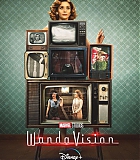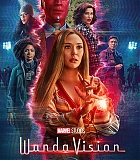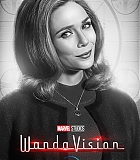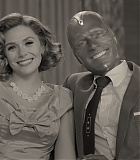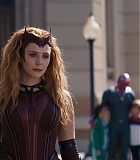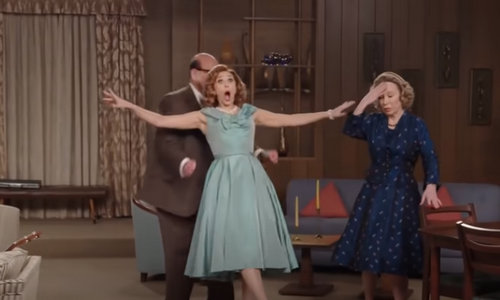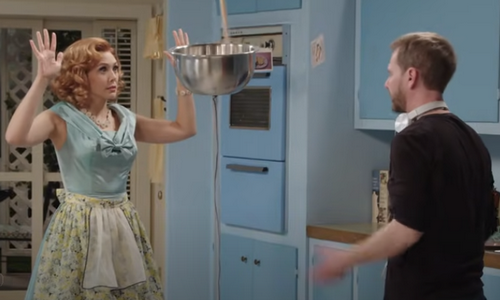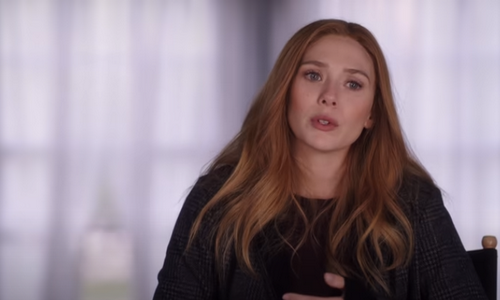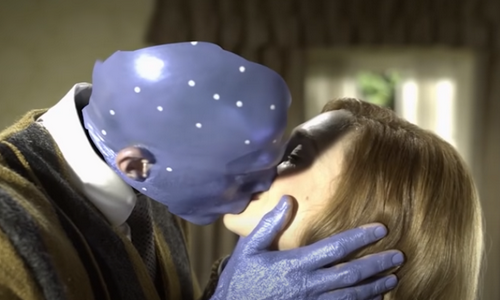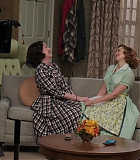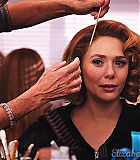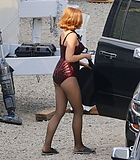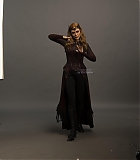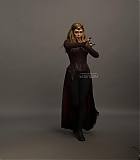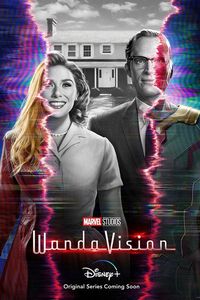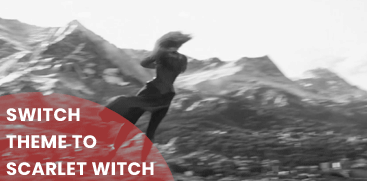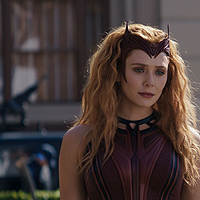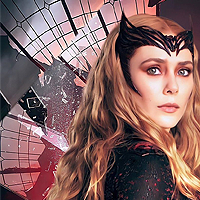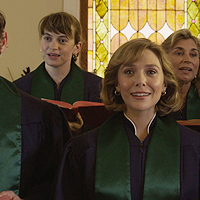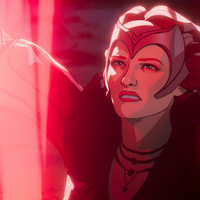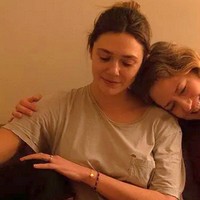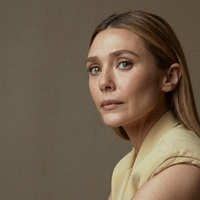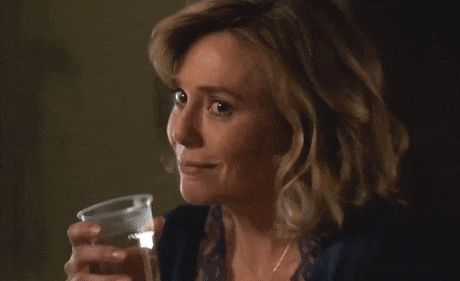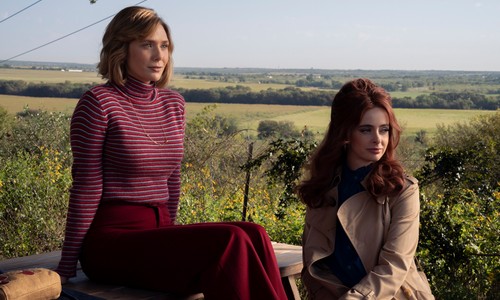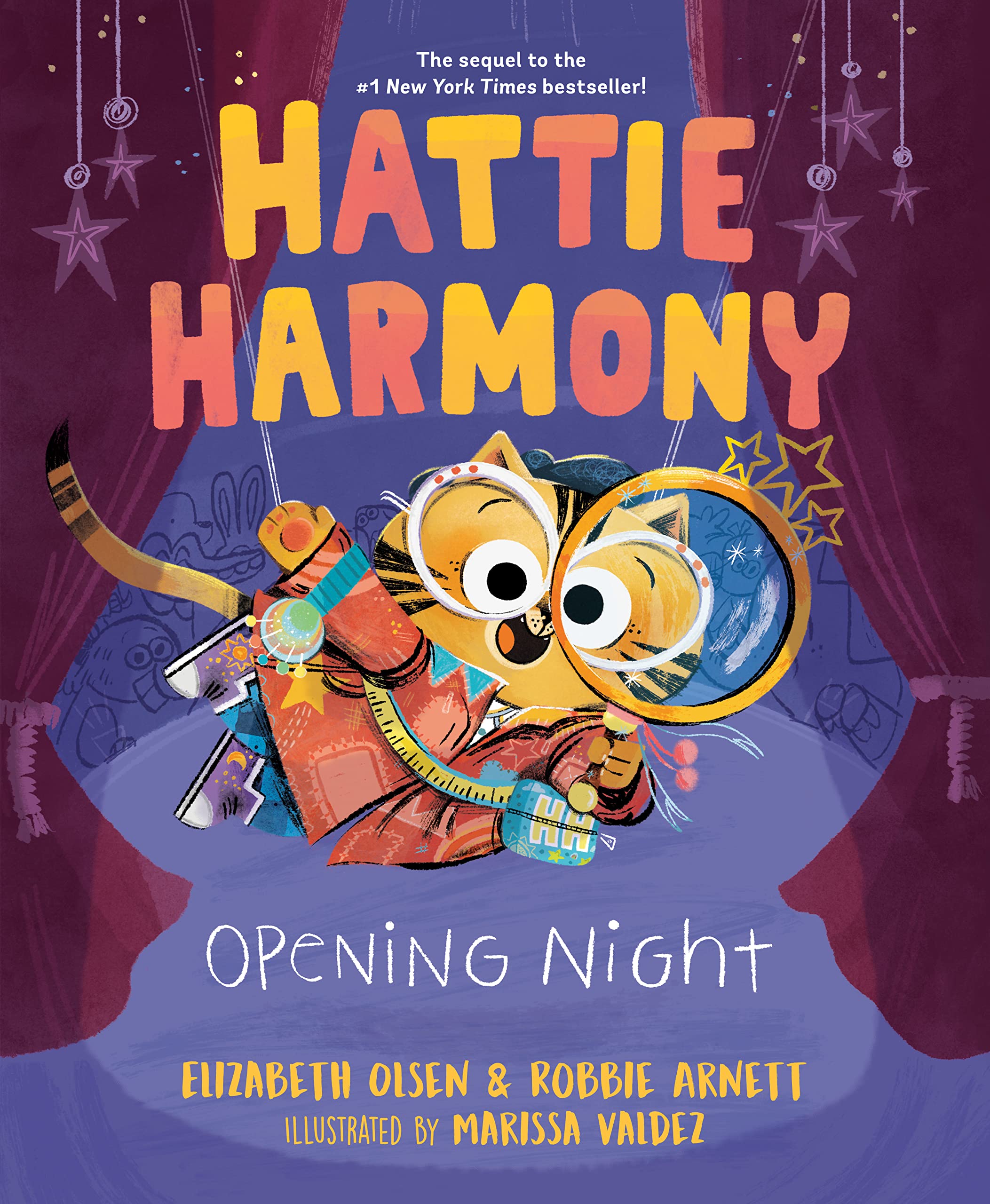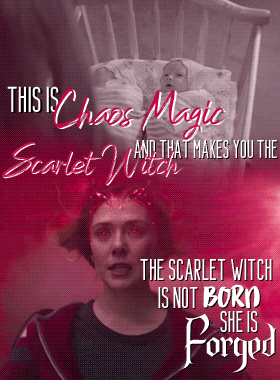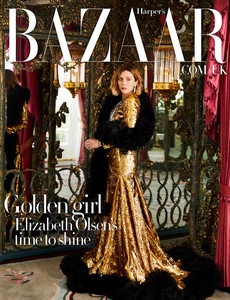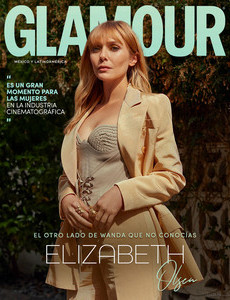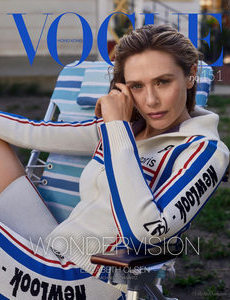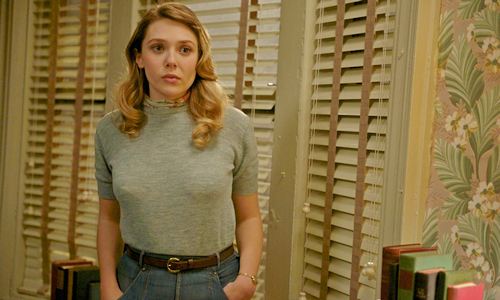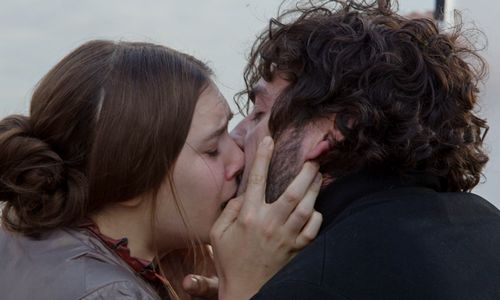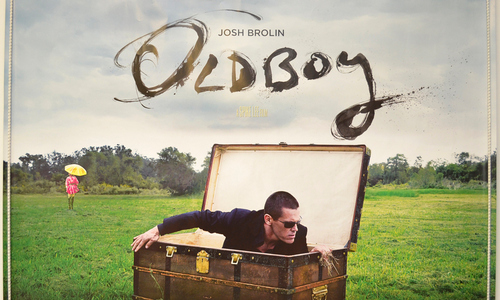Blends the style of classic sitcoms with the MCU, in which Wanda Maximoff and Vision - two super-powered beings living their ideal suburban lives - begin to suspect that everything is not as it seems.
TV Line
Marvel Studios’ First TV Series Is an Ambitious, Refreshing Break From the MCU Norm
In the 13 years since Iron Man first hit theaters, Marvel Studios has established quite well its ability to nail a big-budget popcorn movie. The proof, outside of gargantuan box office numbers, is right there in those Avengers: Endgame audience reaction videos that circulated last spring; Marvel’s got the best action scenes in the superhero game, and it’s been regularly thrilling fans with that level of spectacle for more than a decade.
And yet, with WandaVision — the studio’s very first TV series, premiering Friday, Jan. 15 on Disney+ — Marvel’s proven, perhaps surprisingly, that it can nail a different format entirely: the classic sitcom. In fact, the first three episodes that I’ve seen contain none of the usual Marvel trappings — no fight sequences, no CGI villains — and the result is an intriguing, fresh, genuinely delightful deviation from what we’ve come to expect.
WandaVision, as the title suggests, stars Elizabeth Olsen and Paul Bettany as their respective Marvel Cinematic Universe characters. (Among the show’s many mysteries is how Vision can even exist here, given his death in Avengers: Infinity War, but Bettany assures us that will be solved.) For reasons that are unclear but presumably ominous, they’re the protagonists of their very own sitcom; each episode pays homage to beloved comedies from a different decade, all while maintaining an undercurrent — for both viewers and the two main characters — of, “Say, what’s really going on here?”
It’s rare to encounter a TV show that remains enjoyable in spite of how little information it gives the audience. The first three episodes offer only hints of what’s behind Wanda and Vision’s bizarro universe, yet it remains compelling in the meantime. WandaVision so perfectly encapsulates the retro sitcoms it’s honoring that even as you’re desperate to know what’s really going on, you can’t help but delight in its main characters’ earnest, old-timey antics. (That said, I have to wonder if the show would have been better suited for a binge release, rather than a weekly one — though it’s obvious why Marvel and Disney+ would want to wring weeks’ worth of discourse out of this show.)
Anchoring the series’ unusual premise are excellent, completely committed performances from WandaVision’s cast. Bettany is a gem, bringing a charming goofiness to Vision that he hasn’t been able to showcase in the MCU films, while Kathryn Hahn (Transparent) and Teyonah Parris (Survivor’s Remorse) shine as Wanda and Vision’s new, and nosey, pals in Westview.
But the show really belongs to Olsen. In channeling sitcom legends like Lucille Ball and Mary Tyler Moore, the actress delivers as fearless and dazzling a comedic performance as those icons before her, punctuated by Wanda’s wide-eyed worry that something isn’t quite right with her reality. Olsen previously wowed us in her most recent TV project, the now-cancelled (and underrated) Sorry for Your Loss, and it’s a treat to watch her showcase so many skills here.
As with any Marvel project, WandaVision is primarily designed with MCU fans in mind, though casual viewers can more or less jump right in with no prior knowledge. (Everyone on this show is confused, too, so that helps.) But don’t let the show’s outside-the-box approach worry you: Yes, WandaVision is unlike anything Marvel has done before — but it turns out that’s a very good thing.
THE TVLINE BOTTOM LINE: Featuring magnificent performances and spot-on sitcom homages, WandaVision is a big swing from Marvel Studios that’s as enjoyable as it is risky.
Collider
‘WandaVision’ Review: The MCU’s Most Daring Experiment Yet Could End Up Being Its Best
No MCU project has had this level of creative ambition to date, and that’s something to celebrate.
We know the format so well. The smiles, the loving jabs, the ever-constant laugh track making us not feel alone while we chuckle at home. Of all television formats, the multi-camera sitcom is so ingrained in the modern American psyche — even if you claim to eschew all interest in television, you still understand the rhythms, recognize the catchphrases. For decades, sitcoms have been a happy place for millions of people: In its classic state, nothing is more comforting than a 22-minute slice of story pie, with all misunderstandings and hurt feelings forgiven in the final minutes. That’s why watching WandaVision not just play with, but tear down, those tropes isn’t just a thrilling experience for fans — it can even be a terrifying one.
There have been other TV shows technically set within the Marvel Cinematic Universe, but Disney+’s first original MCU series (and notably the first major Phase 4 narrative to premiere, thanks to Covid) is a surprising deviation — for one thing, it makes a point of setting you back on your heels right from the beginning. Rather than coddle new viewers, the first episode introduces us to loving newlyweds Wanda (Elizabeth Olsen) and Vision (Paul Bettany) searching for suburban monochromatic bliss. As we quickly learn, she has “magical” powers and he’s an artificial creation who doesen’t eat, but beyond that they’re just like any other young couple trying to fit in and find happiness… right?
The answer is of course not, and the trickiest magic act series creator Jac Schaeffer manages to pull off is exactly how much to reveal about how “all is not what it seems.” In the first three episodes provided to critics (two will premiere on Friday, Jan. 15), plenty of clues about what’s going on here are dropped (and Collider will have plenty of coverage breaking down those clues over the next few days). But for right now, I can say that as a fan of magic, the experience of being fooled by WandaVision makes it truly captivating TV so far.
Thanks to all the publicity materials that have already been released, it’s not a real shock to reveal that each episode mimics a specific era of classic TV comedy. What is a shock is how delicious WandaVision’s commitment to that mimicry is; you don’t need a Ph.D. in television history to notice how things change from episode to episode, but the details it draws into each shift, from production design to cinematography to wardrobe to performance, are simply remarkable. MCU fans are very used to trawling through each frame of a new film or show to find easter eggs, but here there’s a whole new level of artistry to appreciate.
To be clear, WandaVision does not make things easy for newcomers to the MCU. Committing to this approach is one of the show’s best qualities, because it keeps the core illusion alive, but does mean that you might want to do a little research before watching. But it’s not hard to see the appeal of this dense mystery appealing to those intrigued by the blend of hybrids, to mention its incredible stars.
That’s because one of the shining takeaways from the first three episodes is just how damn good both Olsen and Bettany are. Despite that early turn in 1995 as “Girl with Flowers” on her older sisters’ sitcom Full House, Olsen’s filmography has always leaned heavily into the dark and dramatic. So watching her make sitcom banter bubble and sparkle is the best of surprises, only amplified by her ability to find pathos and horror within the moments that demand it. To use a term honoring another redhead from the era of TV being paid homage, she’s a natural “comedienne,” but able to easily shift as the show demands. Listening to how the wry edge of her sitcom persona’s voice evolves from episode to episode is like music.
Meanwhile, Bettany has had a few comedic roles in the past, but none that demanded this level of full-on slapstick commitment — yet his follow-through makes him feel like a pro with 100+ episodes of syndicated hilarity under his belt. And it’s not just that he can deliver some killer punchlines, it’s how fiercely he throws himself into the relevant archetypes of each era while always allowing the glimmer of artifice to stand out. Vision is an extremely complicated character that has only had a small amount of screen time thus far to evolve, but the nuances of Bettany’s performance never let us forget just what kind of creation we’re dealing with here, and why this scenario is so much more than what it might seem.
Olsen and Bettany are supported by a promising cast that, of the episodes released, features standouts including veteran great Fred Melamed, That ’70s Show’s Debra Jo Rupp, Buffy the Vampire Slayer alumni Emma Caulfield Ford, and Wrecked’s Asif Ali. Also, I told myself I would spend an entire paragraph of this review on how good Kathryn Hahn is as “nosy neighbor” Agnes, but honestly now that I sit down to do it it feels like an impossible feat, because Hahn is just too good for mere words to encompass. (GIFs to come!) Her perfect echoes of the sitcom sidekick as they echo throughout time, mixed with the underlying tension brought out by whatever’s going on here, makes for a captivating performance we don’t deserve. (Much like how we don’t deserve Kathryn Hahn, full stop.)
I have no spoilers to offer here about where all this might be going, but if you know much about Wanda’s history from the comic books, specifically her struggle to control her world-bending abilities, you’re aware that WandaVision is primed to not have a happy ending. (There’s also the fascinating detail that whatever happens at the end of this season will play a direct role in the forthcoming Marvel movie Doctor Strange in the Multiverse of Madness.)
But beyond its place in the MCU ecosystem, a key part of what makes WandaVision so great so far is that it’s not a goddamn movie (said swearing brought to you by years of frustration over creators calling their TV shows “a 70-hour film”). The episodic structure of the series is essential to its existence, and the rich collection of details packed into each installment makes me grateful we’ll have several weeks to unpack them all.
Is the most exciting thing about WandaVision the fact that for the first time, Marvel is really trying something new? Perhaps. The artistic merit of the films and ancillary media that have been released since 2008 and become perhaps the planet’s most dominant pop culture franchise today has long been a point of controversy. For sure, unique creative voices like Taika Waititi and Ryan Coogler have found ways to thrive within the framework established by Jon Favreau’s first Iron Man film. But that framework has never allowed for this level of experimentation before now — meanwhile, WandaVision dares to actually really challenge the viewer.
Lots of weird stuff has happened in the MCU, but never before has an MCU property kicked things off by trying to make us think that said weirdness is, y’know, normal. It’s great TV on its own merits. But for those who relish these stories but always want them to reach further, WandaVision is a true triumph.
Grade: A
The first two episodes of WandaVision premiere Friday, January 15 on Disney+. Subsequent episodes premiere weekly on Fridays.
Entertainment Weekly
WandaVision is a boldly surreal new direction for the MCU. Or is it?: Review
On Marvel’s first Disney+ miniseries, Elizabeth Olsen and Paul Bettany look liberated in their sitcom prison.
If you asked me to rank every single character in the Marvel Cinematic Universe from very favorite all the way down to Doctor Strange, Wanda Maximoff (Elizabeth Olsen) and Vision (Paul Bettany) would land right in the middle. The benchwarming Avengers were crucial plot points for three of the biggest films ever made. Their powers are eccentric: She’s sort of telekinetic (plus also red energy beams), he’s an android with radical density. A shared comics history offers weird-as-hell adaptation possibilities, and Bettany and Olsen are appealing performers. But the movies squashed them between cosmic twists and global ensembles, leaving their romance as vague as Wanda’s disappearing Sokovian accent.
All of which makes the miraculous season premiere of WandaVision a real feat of chaos magic. The first two episodes of the nine-part miniseries launch Friday on Disney+. At the beginning, the familiar Marvel Studios logo fades to black and white. An opening title sequence introduces Wanda and Vision as a “regular husband and wife” newly arrived in suburban Westview. The town’s a ’50s retroscape lousy with nosy neighbors and gruff bosses. Vision worries the fellas at the office will find out he’s not quite human. “I’m a regular carbon-based employee!” he sputters, while the studio audience cackles. Wanda can move objects with her mind and bewitch-ify a chicken into an egg — but that doesn’t help her cook a last-minute lobster thermidor.
Any resemblance to the Donna Reed or Dick Van Dyke shows is very much intentional. And something is obviously wrong. Today’s date is marked on the kitchen calendar, and neither Wanda nor Vision can’t remember why. There’s a lot they don’t remember. In the three episodes I’ve seen, nobody mentions that time Vision died in Infinity War. Strange sounds rumble outside. Curious color intrudes on the monochrome world: a beeping red light, a drop of blood.
WandaVision casts a spell with its rigid dedication to the throwback conceit. The first episode focuses on an old-fashioned misunderstanding: Guess who’s coming to dinner! As chatterbox-next-door Agnes, Kathryn Hahn keeps pouring herself into the house. Agnes has a habit of mentioning her unseen husband, and Hahn somehow turns the name “Ralph” into a hilarious catchphrase and an eerie threat. You feel you’re watching an actual legendary sitcom character — and then Debra Jo Rupp, an actual sitcom legend, shows up as the tetchy wife of Vision’s boss (Fred Melamed).
Director Matt Shakman honors the rigidity of ’50s multicam, only breaking from that format for an unsettling scene near the end of the premiere. Somehow, the artifice sets the lead actors free. Shorn of whatever emo thing she wasn’t nailing in the movies, Olsen pinpoints a particular strain of daffy exasperation. There are wheels turning within wheels behind Wanda’s domestic pirouetting. Her internal struggle is sort of a plot thing, but it’s also a sincere homage to how Laura Petrie always looked streets ahead of Rob. Meanwhile, Bettany dials up his English as a desperate-to-please goofball husband. And WandaVision cleverly keeps shifting the landscape under their feet. Clothes, furniture, and even camerawork evolve forward a decade per episode. Part 2 is suddenly the ’60s: Wanda in pants, scenes shot outside, the historical invention of sex. By episode 3, the opening title sequence advertises “WandaVision in Color!” and Vision’s got sideburns.
Along the way, Wanda befriends another Westview newcomer supposedly named Geraldine, played by Teyonah Parris. (Her actual identity is a matter of record.) Great to see Parris, who’s no stranger to vintage between Mad Men and If Beale Street Could Talk — and she has a monologue that left me in stitches. Still, a prominent Black character arriving in a meticulous midcentury caucasiaverse opens up questions I’m not sure WandaVision can answer. There are more urgent concerns, maybe. How did the superheroes get here? Where is here? The neighbors start whispering. A voice calls out in the darkness. Is this cheerful suburban domesticity some sort of prison?
Yes, duh: That’s the point of every novel ever written about American suburbia. And getting trapped on a TV sitcom is nothing new. It happened twice last year, on an absurdly entertaining DuckTales and a Legends of Tomorrow episode literally titled “The One Where We’re Trapped on TV.” WandaVision adds opulent visual gloss and the patience of a megafranchise on a victory lap. Creator Jac Schaeffer has a ball building her pleasantville into a netherworld of familiar clichés: poolside planning committee meetings, the way ’70s television kept discovering new colors to paint on walls, uh oh the Vision swallowed some gum!
The assumption is that viewers coming off an 18-month MCU drought will groove onto a serialized enigma buried beneath layers of meta-parody. A good assumption, and WandaVision is already the best original series on Disney+. I should point out that I have many dear friends who get such joy from The Mandalorian, whereas I watched that show’s second season premiere and had the sudden urge to crush every screen in my house with a hammer and take with my family to a faraway land untouched by the lobotomizing scourge of blockbuster television, like maybe we could move San Luis Obispo. The streaming brand for Disney’s other cosmic saga is nostalgia overload, whereas Marvel Studios is cheekily unafraid of tossing out its own history. (A good example: Wanda’s accent, which really did have to go.)
That instinct explains WandaVision’s in-your-face strangeness, which pulls freely from the characters’ previous screen appearances and comics canon while sending its own story line in some unexpected directions. Free of any obvious plot requirements, Bettany and Olsen get to fire up some real chemistry. Their beautiful light twisted fantasy wavers between sweetness and sorrow. You start to worry what secrets their laugh track is hiding. “Is this really happening?” Wanda asks her husband. “Yes, my love,” he promises, “It’s really happening.”
Is it, though? There’s a small problem in these opening episodes. I can’t decide if it’s a problem future episodes will fix — or if the problem is, like, the entire purpose of the miniseries. WandaVision keeps pulling back to suggest the underlying wrongness of their domestic reality, clockwork nudges that grow a bit dull from repetition. Whenever you catch a glimpse of the “real” world, it looks notably lamer than the lusciously imagined blandness of sitcom land. Episode 3 has a sequence where something scary is supposed to be happening, and the whole mood turns generic: spooky choirs on the soundtrack, lights from the sky, one expressive actor’s face suddenly sternly mysterious like they’re setting up a cliffhanger that won’t pay off for weeks.
There’s a lot of stuff to enjoy in WandaVision, and I haven’t even mentioned the period-appropriate theme songs by Frozeneers Kristen Anderson-Lopez and Robert Lopez. But if you pop the hood of this overlit comedy twilight zone, I worry that the central mystery is a bit standard. Success will depend on whether the eventual answers are satisfying — and whether all those fancy sitcom adornments are just a long wind-up to an overly familiar superhero smash-up. Consider WandaVision an unusual first step for this new Marvel phase. The best parts lovingly conjure the mood of very old television shows. The worst parts feel like just another movie. B+
Empire
Wanda Maximoff (Elizabeth Olsen) and her husband Vision (Paul Bettany) are just your average suburban couple. Or are they? Wanda has reality-bending and telekinetic powers; Vision is a robot who can fly. As they struggle to keep up appearances for the neighbours, something rather more sinister is happening behind the scenes.
Episodes viewed: 3 of 9
There’s a grand old Hollywood tradition of actors and directors taking roles in blockbusters and superhero films in order to gain the clout to make some odd personal indie, or pay tribute to a favourite but uncommercial property of the past. Think Guillermo del Toro using his Pacific Rim money to give us The Shape Of Water, his twist on Creature From The Black Lagoon, or Brie Larson using her Captain Marvel hype to make her directorial debut with Unicorn Store. Something similar but strange is happening now in the halls of Marvel. We’re at the stage now where the Marvel Cinematic Universe has the clout to give a superhero their own weird little side project, and pay tribute to their own fandoms: ancient TV sitcoms in this case. Judging by the first few episodes of WandaVision, now the first release of Marvel’s Phase Four thanks to Covid-related delays, what we have here is a one-for-us on a whole new scale.
We open in what appears to be a sitcom of the late 1950s or early 1960s, a sort of I Love Lucy or The Dick Van Dyke Show pastiche about a reality-bending witch, Wanda Maximoff (Elizabeth Olsen), and her beloved robot husband Vision (Paul Bettany). They move into a new house and almost immediately face the crisis of an appointment on the calendar that neither of them remembers putting there. Wouldn’t you know, the boss (Fred Melamed) and his wife (Debra Jo Rupp) are coming to dinner, and Vision’s whole career could depend on the evening going well — but Wanda was planning a romantic anniversary evening and isn’t remotely prepared. It’s played almost as a straight tribute to those ancient shows, but there are tiny touches, here and there — beyond the employment of superpowers — that suggest that something is very wrong.
These are expertly produced and beautifully performed twists on TV history, and Olsen and Bettany commit hard to the cheesy comedy.
Episode two takes us forward a little in TV history, to the slightly later era of I Dream Of Jeannie and Bewitched, and episode three moves again to more The Brady Bunch territory. More and more cracks begin to show in the world of Wanda and her neighbours: Kathryn Hahn as her confidante Agnes, Emma Caulfield Ford as queen bee Dotty, and the rest. Strange, coloured objects sometimes appear amid the black and white, echoing Pleasantville’s fraying of reality, and Wanda seems able to rewind and reset elements of the stories that threaten to go off the rails. Plus, of course, she’s in a rapidly evolving succession of sitcoms rather than a stable world. Is she keeping herself there intentionally? Are we all trapped in Wanda’s visions? Or is there something larger at work? Comics fans will know that this couple has precedent for creating their own reality. When Wanda was bereaved on the page she reshaped the entire world to escape her trauma — and when that didn’t work she erased the powers of 90 per cent of the world’s mutants. Vision, too, has form in creating his own family and hoping for a peaceful life in the suburbs, only to find reality intruding in violent ways. Whatever is happening is not entirely internal: there are already signs in these three episodes that forces are policing the borders of this small reality, and that they may be armed and dangerous.
Marvel has suggested that the show’s nine episodes won’t only be a trip through sitcom history, so expect more familiar superhero business to come. That’s both a relief and not; these are expertly produced and beautifully performed twists on TV history, and Olsen and Bettany commit so hard to the cheesy comedy that you won’t initially miss Wanda’s usually quiet, traumatised figure or Vision’s beatific stoicism. But then, their original characters have room for more exploration too, after playing small supporting roles in the films to date, so the prospect of more from them-as-themselves (or rather her-as-herself, if we’re back in a reality where he’s dead) is not unwelcome.
Above all, it’s delightful to watch superhero characters in a big-budget outing and not have a clue what’s going to happen next. There is likely to be more formulaic stuff to come — we know there’s a big role planned for Teyonah Parris’ Monica Rambeau, and appearances due from Kat Denning’s Darcy and Randall Park’s FBI Agent Woo — but in the meantime, we get a bizarre trip back through beloved TV tropes that is a world away from the usual superhero punch-ups. If this is Marvel’s post-Endgame imperial phase, where they do whatever the hell they want because they can, sign us up.
This is a bizarre and audacious twist on these characters and a world away from the usual explosions and super-punching. Who knew that superhero sitcoms were the element the MCU was missing?
The Hollywood Reporter
‘WandaVision’: TV Review
Elizabeth Olsen’s Scarlet Witch and Paul Bettany’s Vision are trapped in a loop of familiar sitcom plots and styles in Marvel and Disney+’s first project blending the worlds of film and TV.
In departing to Disney+ for a new generation of superhero television tied to its blockbuster film franchises, Marvel distanced itself from the branded shows that filled Netflix queues for years. Though none were unqualified successes, it would be wrong to downplay the visceral fight choreography and Catholic angst of Daredevil, the electric Black consciousness-raising of Luke Cage, the rich subtext and lead performance at the center of Jessica Jones or the sheer schedule-clearing pleasure of being able to quit watching Iron Fist.
The Marvel/Disney+ era kicks off with WandaVision, which through its first three episodes seems determined to be the comic giant’s oddest TV property to date. WandaVision may not be weirder than Guardians of the Galaxy, which still has a talking raccoon and an adolescent sapling, but there’s something creatively courageous about handing a postmodern exploration of sitcom conventions to an audience expecting snazzy suits and explosions. Expect a merited mixture of confusion and TV-nerd joy from viewers in response to a show that has picked a distinctive lane and commits to it.
As it can best be explained, the series takes place sometime after the events of Avengers: Endgame and finds Wanda Maximoff (Elizabeth Olsen) and Vision (Paul Bettany) living in domestic bliss like something out of a sitcom. Exactly like something out of a sitcom. They’re in black-and-white, framed in a 4:3 aspect ratio, and when they flirt or endearingly bicker, a studio audience roars in approval. In the eerie suburban community of Westview, they have a wacky, nosy neighbor (Kathryn Hahn’s Agnes), commitments to local civic organizations and a desperate desire to assimilate despite Wanda being a witch and Vision being a powerful android. And they have a growing suspicion that something about their cul-de-sac tranquility is very wrong.
The suspicions grow as head writer Jac Schaeffer (Black Widow) and director Matt Shakman (The Great) steer Wanda and Vision through an evolving series of sitcom styles — starting with the boxed-in multi-cam aesthetic of something like The Dick Van Dyke Show, moving into a slightly more expansive filmed aesthetic à la Bewitched and bursting into the technicolor style of a Brady Bunch or Mary Tyler Moore Show. Each episode is full of peculiar hints at a larger mythology, but also features a vintage plot like Wanda and Vision struggling to throw together a last-minute dinner party for Vision’s boss and his wife (Fred Melamed and Debra Jo Rupp). Each step up the sitcom ladder is accompanied by Easter egg-laden commercials, catchy theme songs from Kristen Anderson-Lopez and Robert Lopez and expertly reproduced period details from production designer Mark Worthington and costume designer Mayes C. Rubeo.
You can latch onto the elements of building paranoia, with shades of The Truman Show or Blue Velvet-era David Lynch, but be warned that WandaVision is methodical and in no rush to give you Avengers-style thrills. Even the special effects are delivered with an expensive austerity and polished quaintness.
Even with its slow-building sense of menace, WandaVision has more in common with a meta-sitcom like Get a Life or That’s My Bush — half-hours built around tweaking the conventions of the format — than a comic book show. It’s like Marvel’s Too Many Cooks, in reference to the 2014 viral short in which the credits for an ultra-sunny TGIF-style sitcom begin to fold in on themselves and become a postmodern nightmare. Did I find this delightful? Often! Is there a core demo this will flummox? To be sure!
This is in all ways a better acting vehicle for Olsen and Bettany than anything they’ve been given to do previously in the MCU. If you were looking for charming stars to convey a Mary Tyler Moore/Dick Van Dyke vibe, you couldn’t do much better as Olsen and Bettany get to spell out the sweet chemistry that the movies have only hinted at. Freed from that peculiar “Sokovian” accent from the films, Olsen is all wide-eyed reactions and crackling comic delivery, holding her own opposite Hahn, always the most potent of scene stealers. Bettany rediscovers the lanky physical comedy he honed earlier in his career and even, in one scene, marvelously channels Peter O’Toole at his drunken peak. Both leads are good at letting glimpses of vulnerability and uncertainty emerge, as is Teyonah Parris as a neighbor who introduces herself as “Geraldine.”
It’s fair to wonder, especially once Parris shows up, how the show is interpreting the development of the traditional TV sitcom and these hermetically sealed environments that were, for much of the medium’s history, dominated by shades of whiteness. Schaeffer and her writing staff are echoing genre classics, but in Wanda and Vision’s progression through decades and styles, we’re reminded of how often the sitcom has needed to reinvent itself to remain fresh — and of how resistant the means of production has been to letting certain people’s stories be told.
Sitcoms have simultaneously enabled audiences to embrace difference and birthed repetitive tropes that kept individuality from being expressed. What does it mean when our avatars of otherness are a soulful maroon robot and a grieving immigrant with telekinetic powers? I guess we’re going to have to watch to see. The meta-comedies I’ve mentioned all blur the line between celebrating sitcom hackiness and critiquing it. It’s too early in WandaVision for me to be sure which is happening here and in what ratio.
At only 30 minutes per episode, these opening three chapters of WandaVision come close to mirroring traditional sitcom economy. That makes it easier to go along with the the show’s emphasis on noodling rather than pushing the story past what trailers have revealed. I’m curious how much the show will open up in its last six episodes. But there’s a big part of me that would be perfectly content to just let WandaVision be an eccentric oddity and to know that there’s room for that under the Marvel banner.
THE BOTTOM LINE
Not as action-packed as some ‘Avengers’ fans will want, but wonderfully odd.
AIR DATE Jan 15, 2021

